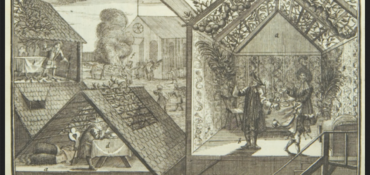
Are We Really Supposed to Be Happy during These Times?
It’s a dark heavy time… our hostages are still not home, war rages on. And it’s Adar, the Jewish month which when our joy should increase. Is this feasible? Are we really supposed to be happy when Israel is at war? And how are we supposed to increase our joy just because the Hebrew calendar month is Adar?
Nachshon Wachsman, an Israeli soldier was returning to his home in Jerusalem in October 1994 when he was kidnapped by Hamas terrorists. They gave Israel an ultimatum two days later that if Israel wouldn’t release their leaders and terrorists they would kill Nachshon at 8pm on Friday.
Nachshon’s plight touched the hearts of Jews around the world, who gathered together to pray for his safe return. His mother, Esther, asked women around the world to light an extra candle for Shabbat for her son. She got about 30,000 letters from people who had lit, including those who lit Shabbat candles for the first time ever.
Over 100,000 people of all stripes gathered in total unity on Thursday night for a prayer vigil. Unfortunately, the ending everyone was hoping for didn’t come. Israeli intelligence learned where Nachshon was being held but during the raid, Nachshon was killed, along with the Nir Poraz, the captain of the elite rescue team.
Many were left with questions, but not Nachshon’s parents – his father asked their rabbi to say during the eulogy – that a father would like to say yes to his children, but sometimes he must say no. World Jewry had begged for Nachshon’s safe return, but G-d had said no.
How does one develop this viewpoint?
There is one book in the Tanach that gives us a clue. The book of Esther, tells the story of Haman’s plan to annihilate all the Jews and G-d turned the decree on its head to save us. It’s an interesting book though. You’d think it would talk about G-d saving the day, yet there is no mention of G-d’s name in the whole book, it reads like a series of random, often unrelated incidents.
It is clear that the book isn’t just a historical recounting of the events of that time period in fact one of the last verses reads: All (Achashveirosh’s] mighty and powerful acts, and the accounts of the greatness of Mordechai, whom the king promoted, are recorded in the book of chronicles of the kings of Media and Persia. (10:2).
So, what is the purpose of the book of Esther if not to tell the historical events?
The Megilla was written not to teach about history, but about destiny. It is filled with random incidents that took place over nine years. Only when we read about them in sequence, do we see a pattern. We see that each incident that took place was part of G-d’s plan to move history along to a destination.
It encourages us to think about the incidents in our own lives, the jobs we get and the jobs we don’t get. The people we marry and the people we don’t marry. The children we have and the children we don’t have. All of it is part of G-d’s plan moving us along for our and the world’s advancement.
Will knowing this mean that we understand everything that happens in our lives and in the world? Will it mean that we don’t have questions? No, but hopefully we will start to see patterns, we will start to see how the good we are given is an opportunity to do good, and the obstacles that we face are opportunities for growth, moving us along closer to perfection, just as Nachshon’s captivity brought the world one step closer to perfection. We will hopefully start to see that we don’t know what the future holds, but that we can make meaning from it.
If you found this content meaningful and want to help further our mission through our Keter, Makom, and Tikun branches, please consider becoming a Change Maker today.









